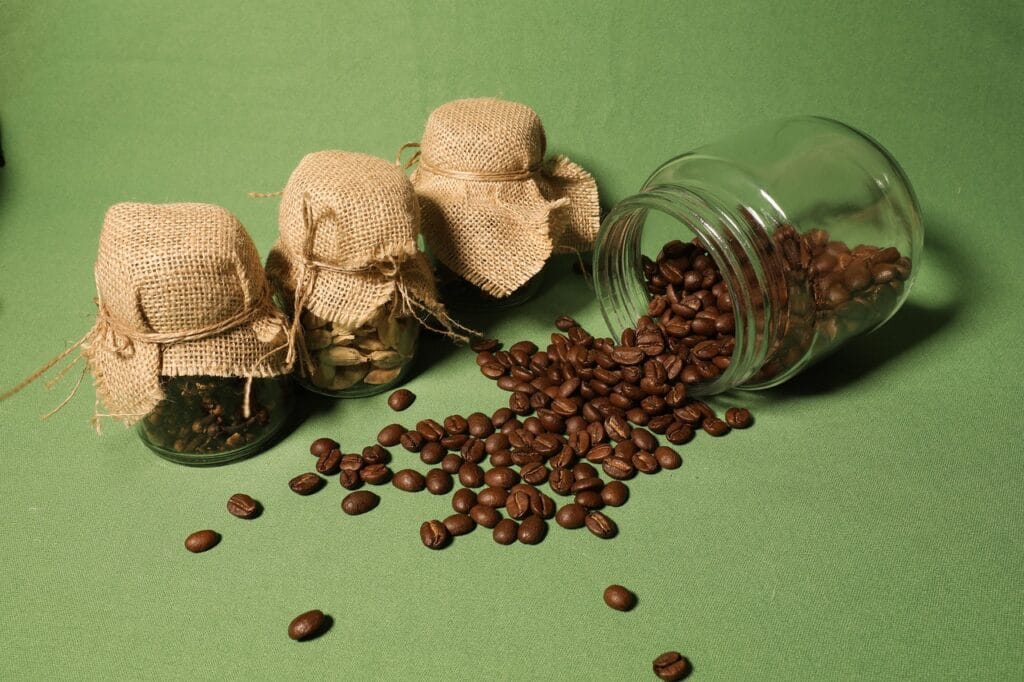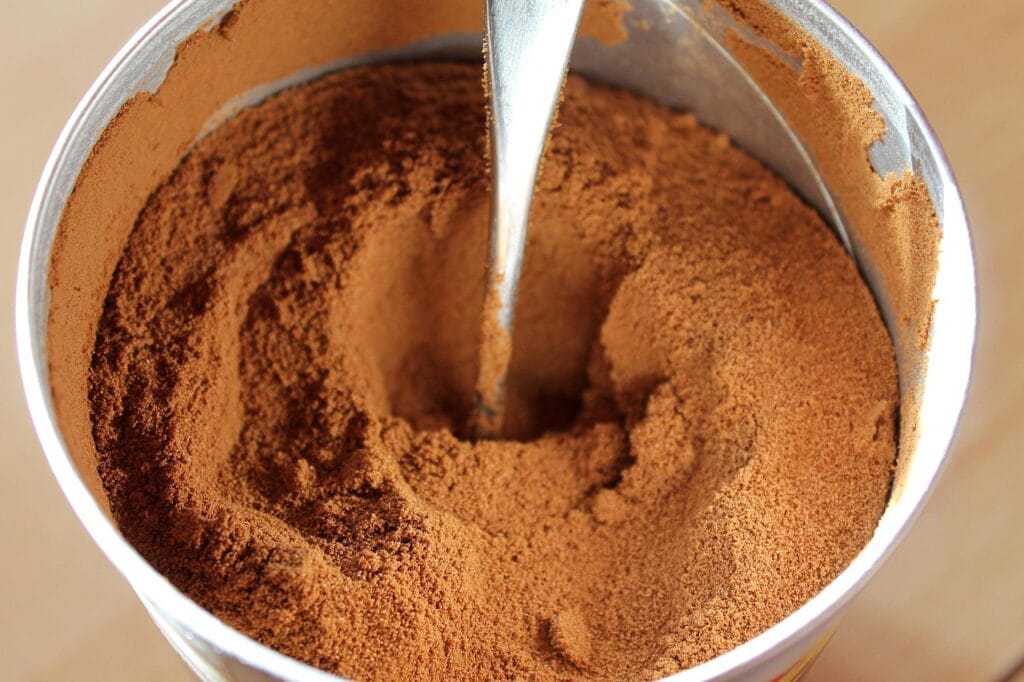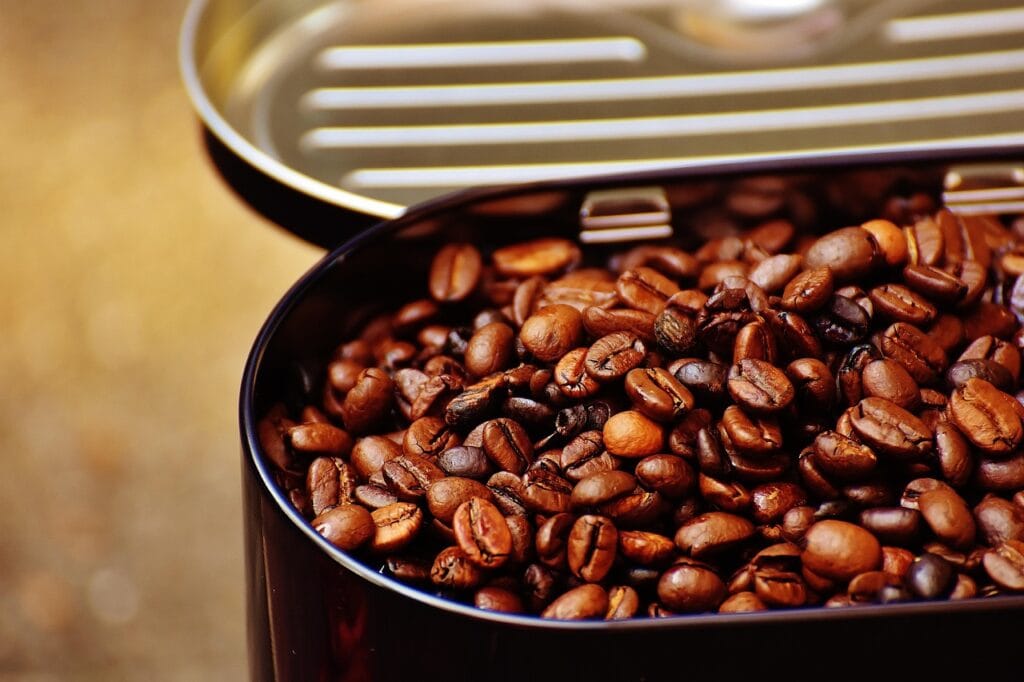Coffee fuels the world, but not every cup is ethical coffee.
In the UK, people increasingly search for “ethical coffee,” “sustainable coffee,” and “Fairtrade coffee” as they seek to make responsible choices.
Meanwhile, regular coffee still dominates supermarket shelves.
This article explores the differences between Fairtrade coffee and regular coffee, helping you make an informed choice next time you shop.

What is Fairtrade Coffee?
Fairtrade ensures better pay for coffee farmers.
They are guaranteed a minimum price that covers production costs, protecting them from market fluctuations.
Additionally, farmers receive a “Fairtrade Premium” to invest in their farms and communities.
This premium helps improve coffee quality and supports projects like new processing facilities.
In 2018 alone, farmers received over €76 million for such improvements (Fairtrade Foundation, 2024.
Fairtrade coffee is more than just a label. It represents a commitment to fair wages, safe working conditions, and sustainable farming.
Farmers receive a minimum price for their beans, protecting them from market fluctuations.
Additionally, a Fairtrade premium supports community projects like schools and hospitals.
This system empowers farmers, improves lives, and fosters long-term growth in coffee-growing regions (Indigo Valley, 2023: Tasting Table, 2023).

What is Regular Coffee?
Regular coffee, also called conventional coffee, follows traditional supply chains.
The focus here is often on maximising yields and minimising costs.
Farmers may not receive a guaranteed price, which can leave them vulnerable to market crashes. Working conditions and environmental standards may not be prioritised.
As a result, regular coffee can sometimes be linked to unfair labour practices and lower pay for growers (Your Coffee Break, 2023: Tasting Table, 2023).
Key Differences at a Glance
| Feature | Fairtrade Coffee | Regular Coffee |
|---|---|---|
| Price Guarantee | Yes | No |
| Social Standards | Strict, enforced | Variable, often lower |
| Environmental Impact | Lower, sustainable practices | Higher, less regulated |
| Community Support | Premium for local projects | Rarely available |
| Farmer Income | More stable, fairer | Less stable, often lower |
Taste and Quality
Fairtrade coffee is often grown in smaller batches with careful attention to quality.
Many consumers notice a more distinct, refined taste.
Conventional coffee, while sometimes excellent, can be inconsistent due to mass production.
However, taste is subjective, and both types offer a wide range of flavours (Your Coffee Break, 2023: Bristol Twenty Tea and Coffee Co., 2023).

Sustainability and Ethical Practices
Sustainability is a hallmark of Fairtrade coffee.
Farmers use eco-friendly methods and limit harmful pesticides. Biodiversity is encouraged, helping protect local ecosystems.
Regular coffee farming may prioritise yield over the environment, leading to deforestation and soil degradation.
Choosing Fairtrade supports a healthier planet and more resilient farming communities (Your Coffee Break, 2023: Tasting Table, 2023).
Economic and Social Impact
Fairtrade coffee directly supports better living standards.
Workers are less likely to face exploitation or dangerous conditions.
Children are more likely to stay in school.
Regular coffee, by contrast, can be linked to child labour and unfair wages.
The Fairtrade system helps break the cycle of poverty in coffee-growing regions (Tasting Table, 2023).

Consumer Choices and Trends in the UK
UK consumers are increasingly choosing ethical and sustainable options.
Searches for “Fairtrade coffee UK,” “best ethical coffee,” and “sustainable coffee brands” are rising.
Supermarkets and cafes now offer more Fairtrade products.
This shift reflects growing awareness of social and environmental issues (Tasting Table, 2023).
Price and Availability
Fairtrade coffee is usually more expensive than regular coffee.
This higher cost reflects fairer wages and sustainable practices.
Regular coffee is widely available and often cheaper.
However, the price difference is narrowing as demand for ethical products grows (Your Coffee Break, 2023 : Tasting Table, 2023).
Fairtrade vs. Direct Trade Coffee
Some coffee lovers wonder about direct trade.
Direct trade means roasters buy straight from farmers, cutting out middlemen.
This can mean even higher prices for farmers and better quality for consumers.
However, direct trade is less regulated than Fairtrade.
Both models aim to support farmers, but Fairtrade offers a more structured, certification-based approach (Bean N Bean Coffee, 2023: Bristol Twenty Tea and Coffee Co., 2023 : Yorks Cafe & Coffee Roasters, 2023).
How to Choose the Right Coffee
Consider what matters most to you. If you value fair wages, sustainability, and community support, choose Fairtrade.
If price is your main concern, regular coffee may be attractive.
However, even small changes in your buying habits can make a big difference for coffee-growing communities.
The Future of Coffee
The coffee industry is evolving.
More consumers want transparency and ethical sourcing.
Brands are responding with new certifications and sustainable practices.
By choosing Fairtrade, you contribute to a fairer, more sustainable future for coffee farmers worldwide (Tasting Table, 2023).
Conclusion
Fairtrade coffee and regular coffee differ in price, taste, and impact.
Fairtrade offers fairer wages, better working conditions, and environmental benefits.
Regular coffee is more affordable but often comes with hidden social and environmental costs.
The choice is yours, but every cup counts.
Reference List
Your Coffee Break, 2023. Fair Trade vs. Conventional Coffee Beans: A Wholesale Comparison. Available at: https://www.yourcoffeebreak.co.uk/lifestyle/26338805409/fair-trade-vs-conventional-coffee-beans-a-wholesale-comparison/ [Accessed 23 July 2025].
Fairtrade Foundation, 2023. What’s the difference: Fairtrade vs ethical coffee. Available at: https://www.fairtrade.org.uk/media-centre/blog/ethical-coffee-vs-fairtrade-coffee/ [Accessed 23 July 2025].
Live Frankly, 2023. Specialty coffee vs Fairtrade coffee brands | Sustainable food & drink. Available at: https://livefrankly.co.uk/critical-thinking/sustainability-ideas/specialty-coffee-and-certifications-whats-the-difference-between-direct-trade-and-fairtrade-coffee-brands/ [Accessed 23 July 2025].
Indigo Valley, 2023. Fairtrade Coffee Explained: Why it Matters and How You Can Make a Difference. Available at: https://www.indigovalley.co.uk/blog/fairtrade-coffee-explained-why-it-matters-and-how-you-can-make-a-difference [Accessed 23 July 2025].
Tasting Table, 2023. Fair Trade Coffee Vs. Regular Coffee: What’s The Difference?. Available at: https://www.tastingtable.com/926314/fair-trade-coffee-vs-regular-coffee-whats-the-difference/ [Accessed 23 July 2025].
Bean N Bean Coffee, 2023. The Difference Between Direct Trade and Fairtrade Coffee. Available at: https://beannbeancoffee.com/blogs/beansider/the-difference-between-direct-trade-and-fair-trade-coffee [Accessed 23 July 2025].
Bristol Twenty Tea and Coffee Co., 2023. Fair Trade Vs Direct Trade Coffee – Bristol Twenty Tea and Coffee Co. Available at: https://bristol-twenty.co.uk/bristol-twenty-coffee-investigates-fair-trade-vs-direct-trade/ [Accessed 23 July 2025].
Yorks Cafe & Coffee Roasters, 2023. Fair Trade vs Direct Trade?. Available at: https://yorkscafe.co.uk/blogs/news/fair-trade-vs-direct-trade [Accessed 23 July 2025].


I loved as much as youll receive carried out right here The sketch is tasteful your authored material stylish nonetheless you command get bought an nervousness over that you wish be delivering the following unwell unquestionably come more formerly again since exactly the same nearly a lot often inside case you shield this hike